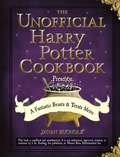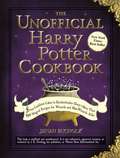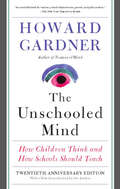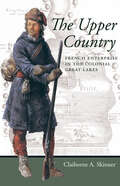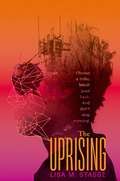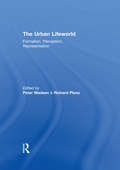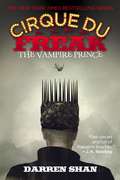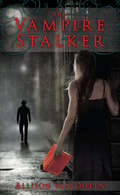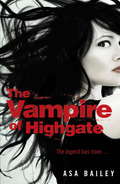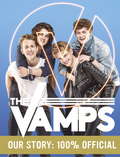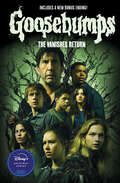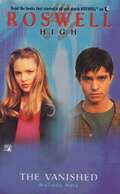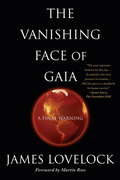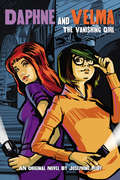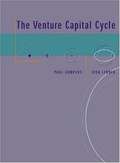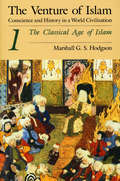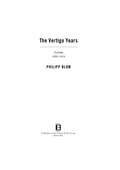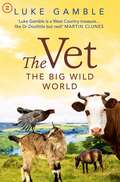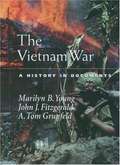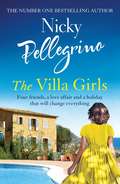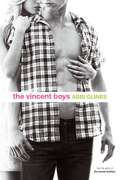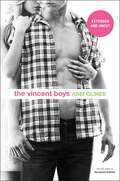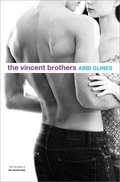- Table View
- List View
The Unofficial Harry Potter Cookbook Presents - A Fantastic Beasts & Treats Menu
by Dinah BucholzIn celebration of the movie adaptation of J.K. Rowling's Fantastic Beasts and Where to Find Them, The Unofficial Harry Potter Cookbook has put together a fantastically fun (and free!) menu of magical treats. This selection of recipes will satisfy your sweet tooth as you prepare for your crash course in Magizoology. Now you can whip up your own sugar mice and peppermint toads while watching Newt Scamander try to track down billywigs, nifflers, and more.With not one but two butterbeer recipes to pair with these eight wonderful treats, you're in for a very sweet feast. And if you're looking for more recipes inspired by the world of Harry Potter, check out the full version of The Unofficial Harry Potter Cookbook!
The Unofficial Harry Potter Cookbook: From Cauldron Cakes to Knickerbocker Glory--More Than 150 Magical Recipes for Wizards and Non-Wizards Alike (Unofficial Cookbook)
by Dinah Bucholz<P>Bangers and mash with Harry, Ron, and Hermione in the Hogwarts dining hall. <P>A proper cuppa tea and rock cakes in Hagrid's hut. <P>Cauldron cakes and pumpkin juice on the Hogwarts Express. <P>With this cookbook, dining a la Hogwarts is as easy as Banoffi Pie! With more than 150 easy-to-make recipes, tips, and techniques, you can indulge in spellbindingly delicious meals drawn straight from the pages of your favorite Potter stories, such as: Treacle Tart--Harry's favorite dessert, Molly's Meat Pies--Mrs. Weasley's classic dish, Kreacher's French Onion Soup, Pumpkin Pasties--a staple on the Hogwarts Express cart. <P>With a dash of magic and a drop of creativity, you'll conjure up the entrees, desserts, snacks, and drinks you need to transform ordinary Muggle meals into magical culinary masterpieces, sure make even Mrs. Weasley proud!
The Unschooled Mind: How Children Think and How Schools Should Teach
by Howard GardnerMerging cognitive science with educational agenda, Gardner makes an eloquent case for restructuring our schools by showing just how ill-suited our minds and natural patterns of learning are to the prevailing modes of education. This reissue includes a new introduction by the author.
The Upper Country: French Enterprise in the Colonial Great Lakes (Regional Perspectives on Early America)
by Claiborne A. SkinnerThe Upper Country melds myth and conventional history to provide a memorable tale of French designs in the middle of what became the United States. Putting the reader on the battlefields, at the trading posts, and on the rivers with voyageurs and their allies from the Indian nations, Claiborne Skinner reveals the saintly missionaries and jolly fur traders of popular myth as agents of a hard-nosed, often ruthless, imperial endeavor. Skinner’s engaging narrative takes the reader through daily life at posts like Forts Saint Louis and Michilimakinac, illuminates the complexities of interracial marriage with the courtship of Michel Aco at Peoria, and explains how France's New World adventurism played a role in the outbreak of the Seven Years War and the beginning of the modern era.In this story, many of the traditional heroes and villains of American history take on surprising roles. The last Stuart kings of England seem shrewd and even human; George Washington makes his debut appearance on the stage of history by assassinating a French officer and plunging Europe into the first truly global war. From unthinkable hardship to dreams of fur trade profits, this fascinating exploration sheds new light on France and its imperial venture into the Great Lakes.
The Uprising: The Forsaken Trilogy (The Forsaken Trilogy)
by Lisa M. StasseIn this dystopian sequel to The Forsaken, Alenna has survived the brutality of life on the wheel—but her fight is not over yet.Alenna escaped. It was expected that she would die on the wheel, the island where would-be criminals are sent as directed by the UNA—the totalitarian supercountry that was once the United States, Mexico, and Canada. But Alenna and her boyfriend, Liam, made it to safety. Except safety, they will soon learn, is relative. In order to bring down the UNA, they must first gain control of the wheel. If the mission succeeds, the wheel will become a base of revolution. But between betrayals, a new Monk leading a more organized army of Drones, and the discovery of a previously unknown contingent, Alenna, Liam, and their allies might be in over their heads. One thing Alenna knows for sure: There will be a reckoning. And not everyone she loves will make it out alive.
The Urban Lifeworld: Formation Perception Representation
by Peter Madsen Richard PlunzUrban conditions are crucial to our experience of modernity, and, as reflected by art, literature and popular culture, have influenced contemporary ideas of what urban life is about.The Urban Lifeworld contributes to our understanding of the cultural role of cities by offering new insight into the analysis of urban experience. Two exceptional cities, New York and Copenhagen, are the focus of this exploration of cultural representations of urban life, which investigates the contrasts between perceptions and formation of the urban lifeworld.Integrating sociological, aesthetic and anthropological approaches to urban questions, this collection of essays presents a new vision of the cityscape which will enrich both academic debate and public life.
The Vampire Prince: The Saga of Darren Shan #6) (Cirque Du Freak #6)
by Darren ShanBranded a traitor, betrayed by a friend, hunted by the vampire clan -- Darren Shan, the vampire's assistant, faces certain death. Can Darren reverse the odds and outwit a Vampire Prince, or is this the end of thousands of years of vampire rule? Darren's initiation on Vampire Mountain draws to a stunning, bloody conclusion -- but the Saga continues ...
The Vampire Stalker
by Allison van DiepenWhat if the characters in a vampire novel left their world--and came into yours?Amy is in love with someone who doesn't exist: Alexander Banks, the dashing hero in a popular series of vampire novels. Then one night, Amy meets a boy who bears an eerie resemblance to Alexander. In fact, he IS Alexander, who has escaped from the pages of the book and is in hot pursuit of a wicked vampire named Vigo. Together, Amy and Alexander set out to track Vigo and learn how and why Alexander crossed over. But when she and Alexander begin to fall for each other, Amy wonders if she even wants him to ever return to the realm of fiction.
The Vampire of Highgate
by Asa BaileyGripping, atmospheric and sexy, this is British horror at its best. Kathy Bilic is adopted. Until now, she's had only a vague memory of her real family. But terrifying dreams and visions of her sister Amber are waking her in the night. When Amber starts giving her messages, Kathy gets a sickening sense that her sister is in danger - from a deadly, inhuman source. Kathy hits London to find her sister - but when she arrives at her aunt's house in Highgate, she is actively dissuaded from pursuing the mystery. Undeterred, Kathy's trail leads her through a bloody murder in the British Museum to a charged meeting with the mysterious, hypnoptic Antwain and a final confronation with her sinister father. Before long, Kathy uncovers the full horror of her heritage and her sister's fate at the hands of the Vampire of Highgate.
The Vamps: 100% Official
by The VampsSince forming on YouTube in 2012, The Vamps have become one of the biggest bands in the UK. They have travelled the world with massive arena tours, sold hundreds of thousands of records, and gained legions of amazing and devoted fans. They have gone from schoolboys to superstardom in just a few years, and for the first time Connor, Brad, Tristan and James tell their story. From life on the road to dealing with their new-found fame, nothing is off-limits.Featuring exclusive behind-the-scenes photography, this is a fully-illustrated joint autobiography: the perfect book for any Vamps fan.
The Vamps: Official Book
by The VampsSince forming on YouTube in 2012, The Vamps have become one of the biggest bands in the UK. They have travelled the world with massive arena tours, sold hundreds of thousands of records, and gained legions of amazing and devoted fans. They have gone from schoolboys to superstardom in just a few years, and for the first time Connor, Brad, Tristan and James tell their story. From life on the road to dealing with their new-found fame, nothing is off-limits.Featuring exclusive behind-the-scenes photography, this is a fully-illustrated joint autobiography: the perfect book for any Vamps fan.
The Vanished Return (Goosebumps: The Vanishing Novel)
by Ms. Kate HowardDiscover what happens in the new season of the hit Disney Plus and Hulu series in this official Goosebumps YA novel! Includes an exclusive ending only available in this book! Thirty years ago, four teenagers disappeared while exploring an abandoned military bunker. Their story become a local legend in Gravesend, and when Devin and Cece come to visit their dad for the summer, they’re dared to go inside. But something strange happens to Devin when he enters the old fort….Soon, things in Gravesend are changing. In order to stop the effects from spreading, Devin, Cece, and their friends have to figure out what happened to the group of kids who vanished. If they don’t hurry, they’ll become the bunker’s next victims.This official YA novel tells the story of the hit series Goosebumps: The Vanishing -- plus additional scenes and information not seen on the show!
The Vanished: The Vanished (Roswell High #7)
by Melinda MetzGone for good? Max is on a mission to save Alex, who is stranded on the home planet. Alex may be lost or wounded -- or worse. To get Alex back, Max knows he'll need one of the Stones of Midnight. If only he knew where to find one... Liz understands that Max can't rest until he finds Alex. And she's been busy herself -- spending time with Roswell newcomer Adam. She's been having so much fun with Adam that Max is in danger...of being forgotten.
The Vanishing Face of Gaia: A Final Warning
by James LovelockThe global temperature is rising, the ice caps are melting, and levels of pollution across the world have reached unprecedented heights. According to eminent scientist James Lovelock, in order to survive an assault from her dependents, the Earth is lurching ever closer to a permanent ?hot state. OCO Within the next century, we will almost certainly be forced to give up many of the comforts of western living as supplies are threatened. Only the fittest?and the smartest?will survive. A reluctant jeremiad from one of the environmental movementOCOs elder statesmen, "The Vanishing Face of Gaia" offers an essential wake-up call for the human race.
The Vanishing Girl (Daphne and Velma #1)
by Josephine RubyIt's the classic girl detectives like you've never seen them before! Daphne Blake and Velma Dinkley have a terrifying new mystery to solve - and this time, the culprit is far more frightening than any man in a mask...Popular Daphne Blake and über-nerd Velma Dinkley are not friends. They aren't enemies either, but they don't have any reason to speak to each other, and that's how they prefer it. The two girls grew up together - they'd been best friends since pre-K - but when they hit middle school, Daphne dropped Velma and never looked back.These days, Daphne's deep in the popular crowd, daughter of the richest family in town, while Velma's an outsider, hiding from the world behind her thick glasses. When they run into each other in the halls of Crystal Cove High, they look the other way.But then Daphne's best friend, Marcy - who happens to be Velma's cousin - goes missing. A century ago, there was a wave of disappearances in Crystal Cove, and many local people believe that supernatural forces were behind it. Now the whole town believes those same forces are back . . . and up to no good.Daphne and Velma may be the only ones who can solve the mystery and save Marcy-if they can trust each other enough to try. Especially since the truth might be stranger-and scarier-than either girl can imagine . . .
The Venture Capital Cycle (2nd edition)
by Paul A. Gompers Joshua LernerIn The Venture Capital Cycle, Paul Gompers and Josh Lerner correct widespread misperceptions about the nature and role of the venture capitalist and provide an accessible and comprehensive overview of the venture capital industry. Bringing together fifteen years of ground-breaking research into the form and function of venture capital firms, they examine the fund-raising, investing, and exit stages of venture capitalists. Three major themes run throughout the process: venture investors confront tremendous information and incentive problems; venture capital processes are inherently interrelated, and a complete understanding of the industry requires a full understanding of the venture cycle; and, unlike most financial markets, the venture capital industry adjusts very slowly to shifts in the demand for and the supply of investment capital. This second edition has been thoroughly revised in light of recent research findings, and includes six new chapters. The first part, on fund-raising, now includes a chapter that examines what determines the level of venture capital fund-raising and how tax policy influences the demand for venture capital. Three new chapters in the second part, on investing, examine what kind of distortions are introduced when the venture capital market goes dramatically up, a question prompted by the 1999-2000 market bubble; demonstrate that the venture capital industry does indeed spur innovation, an important determinant of economic growth; and examine whether and under what circumstances governments can be effective venture capitalists. Two new chapters in the third part, on exiting venture capital investments, discuss whether venture capital firms affiliated with investment-banks are prone to conflicts of interest with public offerings and how lockups on initial public offerings are used to limit conflicts of interest.
The Venture of Islam, Volume 1: The Classical Age of Islam
by Marshall G. S. HodgsonIn this study, Hodgson traces and interprets the historical development of Islamic civilization from before the birth of Muhammad to the middle of the twentieth century.
The Vertigo Years: Europe, 1900-1914
by Phillip BlomEurope, 1900#150;1914: a world adrift, a pulsating era of creativity and contradictions. The major topics of the day: terrorism, globalization, immigration, consumerism, the collapse of moral values, and the rivalry of superpowers. The twentieth century was not born in the trenches of the Somme or Passchendaele#151;but rather in the fifteen vertiginous years preceding World War I. In this short span of time, a new world order was emerging in ultimately tragic contradiction to the old. These were the years in which the political and personal repercussions of the Industrial Revolution were felt worldwide: Cities grew like never before as people fled the countryside and their traditional identities; science created new possibilities as well as nightmares; education changed the outlook of millions of people; mass-produced items transformed daily life; industrial laborers demanded a share of political power; and women sought to change their place in society#151;as well as the very fabric of sexual relations. From the tremendous hope for a new century embodied in the 1900 World’s Fair in Paris to the shattering assassination of a Habsburg archduke in Sarajevo in 1914, historian Philipp Blom chronicles this extraordinary epoch year by year. Prime Ministers and peasants, anarchists and actresses, scientists and psychopaths intermingle on the stage of a new century in this portrait of an opulent, unstable age on the brink of disaster. Beautifully written and replete with deftly told anecdotes, The Vertigo Years brings the wonders, horrors, and fears of the early twentieth century vividly to life.
The Vet: the Big Wild World
by Luke GambleLuke Gamble cut his teeth as a mixed practice vet in the West Country. Now it's time to see if he can stand on his own two feet. Wild stallions, drowning cows and constipated snakes aside, Luke's challenges have only just begun.
The Vietnam War: A History in Documents
by Marilyn B. Young John J. Fitzgerald A. Tom GrunfeldThe Vietnam War tells the story of one of the most divisive episodes in modern American history through primary sources, ranging from government documents, news reports, speeches, popular songs to memoirs, writings by Vietnam veterans (including coauthor John Fitzgerald), and poetry by Vietnamese and Americans on matching themes. The book begins in the 19th century when Vietnam became a French colony, and traces the insidious route by which the United States became involved in a war on the other side of the world.
The Villa Girls
by Nicky PellegrinoFour friends, a sun-drenched escape, and a holiday that will change everything...THE VILLA GIRLS is the story of four young women who decide that wherever they are in the world and whatever they're doing they'll meet every few years for a holiday together somewhere sunny. Despite life taking them in very different directions, their snatched days in the sun in little hidden villas are crucial to them all. Escape, celebration, recovery - over the years the holidays change their lives.Rosie was always the odd one out - initially only invited as the others felt sorry for her, but it seems that in the end, she might be the one whose life is touched the most by her villa days. For it's there that she meets Enzo. The eldest son of an olive oil dynasty in southern Italy, he is being groomed to take over one day as head of the family.Rosie and Enzo have a holiday romance that seems set to become something more serious until she discovers he is not entirely what he seems. Years later they meet again and this time Rosie must decide how much she is prepared to compromise for the sake of love...
The Villain's Daughter
by Roberta KraySean O'Donnell, small-time villain and family man, walked out of his home nineteen years ago and hasn't been heard of since. Now his daughter, Iris, has returned to the East End in the hope of finding him again. But she's not the only one on his trail. The psychotic Street brothers are right on her heels - and they've got good reason to want her father dead. With the help of the mysterious Guy Wilder, Iris slowly begins to unearth the horrors of the past. It isn't long before she comes to realise that some secrets are best left buried...
The Vincent Boys (The\vincent Boys Ser. #1)
by Abbi GlinesGet seduced by a sizzling account of attraction and betrayal in this previously self-published phenomenon.There was something wicked about Beau that drew me to him. What was wrong with me? Why did I want to sin so badly?Ashton is getting tired of being good, of impressing her parents and playing ideal girlfriend to Sawyer Vincent. Sawyer is perfect, a regular Prince Charming, but when he leaves town for the summer, it’s his cousin Beau who catches Ashton’s eye. Beau is the sexiest guy she’s ever seen, and even though he’s dangerous, Ashton is drawn to him.Beau loves his cousin like a brother, so the last thing he wants to do is make a move on Sawyer’s girl. Ashton is off-limits, absolutely. That’s why he does his best to keep his distance, even though he’s been in love with her forever. When Ashton wants to rekindle their childhood friendship in Sawyer’s absence, Beau knows he should say no.Ashton and Beau don’t want to hurt Sawyer. But the more they try to stay away from each other, the more intense their urges become. It’s getting way too hard to resist...
The Vincent Boys -- Extended and Uncut: Extended and Uncut
by Abbi GlinesJust when you thought things couldn’t get any hotter…Beau and Ash’s sinful romance now includes super scandalizing, never-before-published scenes in this special, eBook-only companion to the steamy printed original.There was something wicked about Beau that drew me to him. What was wrong with me? Why did I want to sin so badly?Ashton is getting tired of being good, of impressing her parents and playing ideal girlfriend to Sawyer Vincent. Sawyer is perfect, a regular Prince Charming, but when he leaves town for the summer, it’s his cousin Beau who catches Ashton’s eye. Beau is the sexiest guy she’s ever seen, and even though he’s dangerous, Ashton is drawn to him.Beau loves his cousin like a brother, so the last thing he wants to do is make a move on Sawyer’s girl. Ashton is off-limits, absolutely. That’s why he does his best to keep his distance, even though he’s been in love with her forever. When Ashton wants to rekindle their childhood friendship in Sawyer’s absence, Beau knows he should say no.Ashton and Beau don’t want to hurt Sawyer. But the more they try to stay away from each other, the more intense their urges become. It’s getting way too hard to resist...
The Vincent Brothers: The Vincent Boys -- Extended And Uncut; The Vincent Brothers -- Extended And Uncut (The\vincent Boys Ser. #2)
by Abbi GlinesHot romance is the cure for heartbreak in this sequel to The Vincent Boys.Getting a boy to fall head-over-heels in love with you isn’t easy. Especially when he’s been in love with your cousin for as long as you can remember. Lana has lived her life in her cousin’s shadow. Ashton always made perfect grades, had tons of friends, and looks model-perfect. And she’s always had Sawyer Vincent—the only boy Lana’s ever wanted—wrapped around her finger. But now things are different. Lana has a chance to make Sawyer see her, and she’s taking it. If only he’d get over Ashton—because Lana is sick of second-best. Sawyer’s heart is broken. He’s lost his best girl to his best friend. And then Lana comes to town. Ashton’s cousin has always been sweet and soft-spoken, but now she’s drop-dead gorgeous as well. Sawyer doesn’t know if Lana can heal his broken heart, but spending time with her might at least make Ashton jealous. What starts as a carefree fling becomes a lusty game of seduction. Sawyer and Lana may have different motives, but their scintillating hookups are the same kind of steamy. . . .
